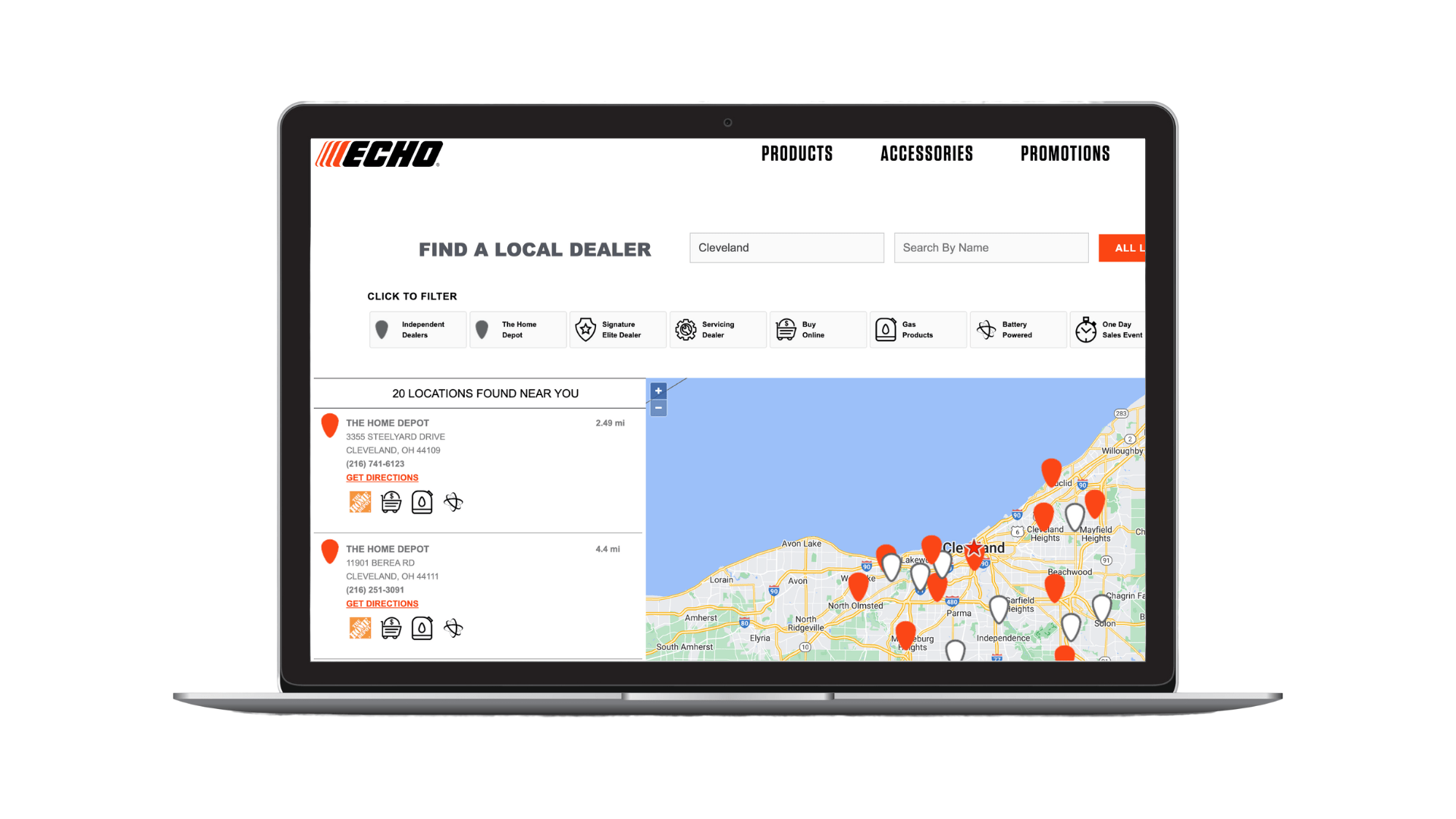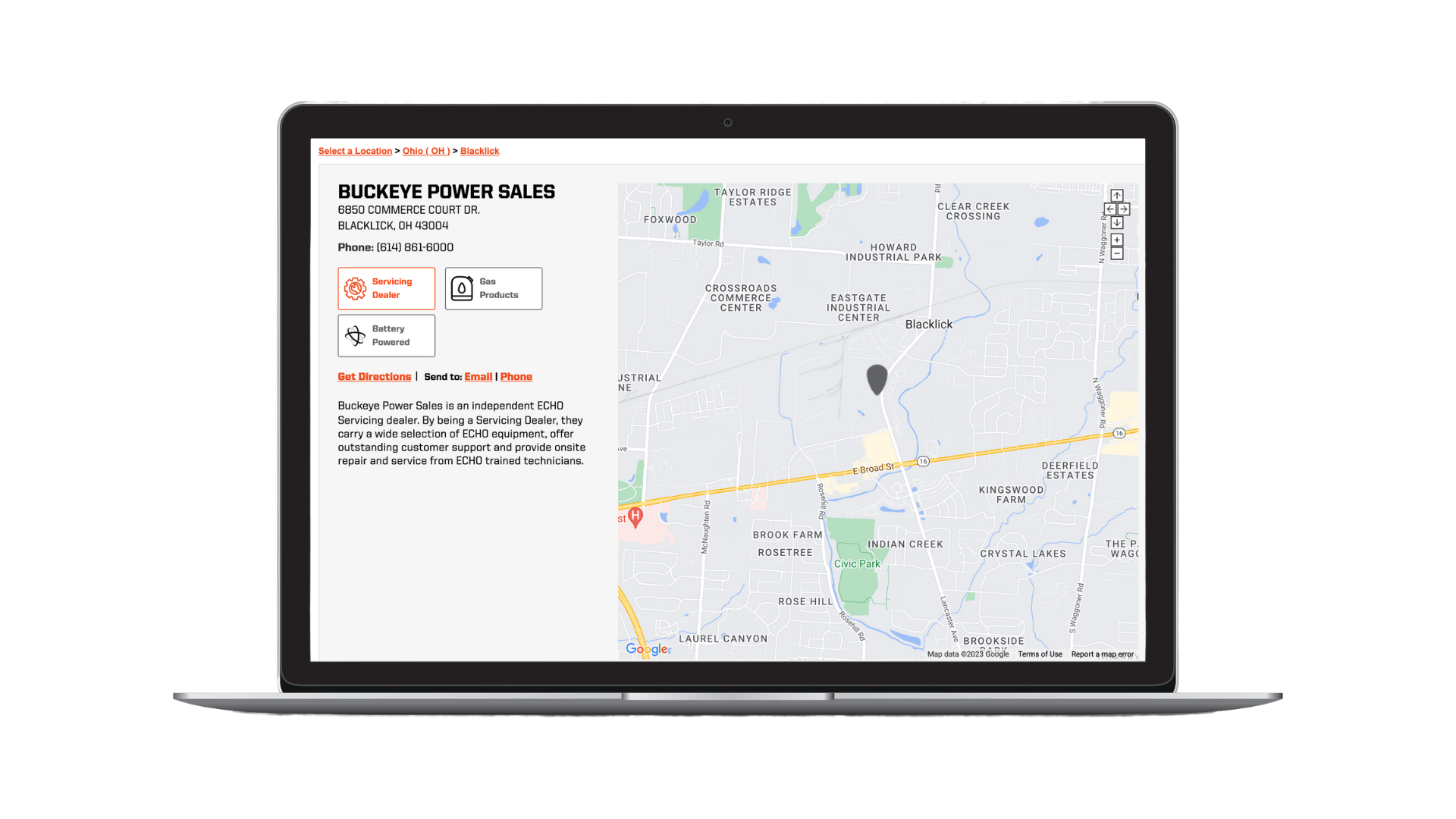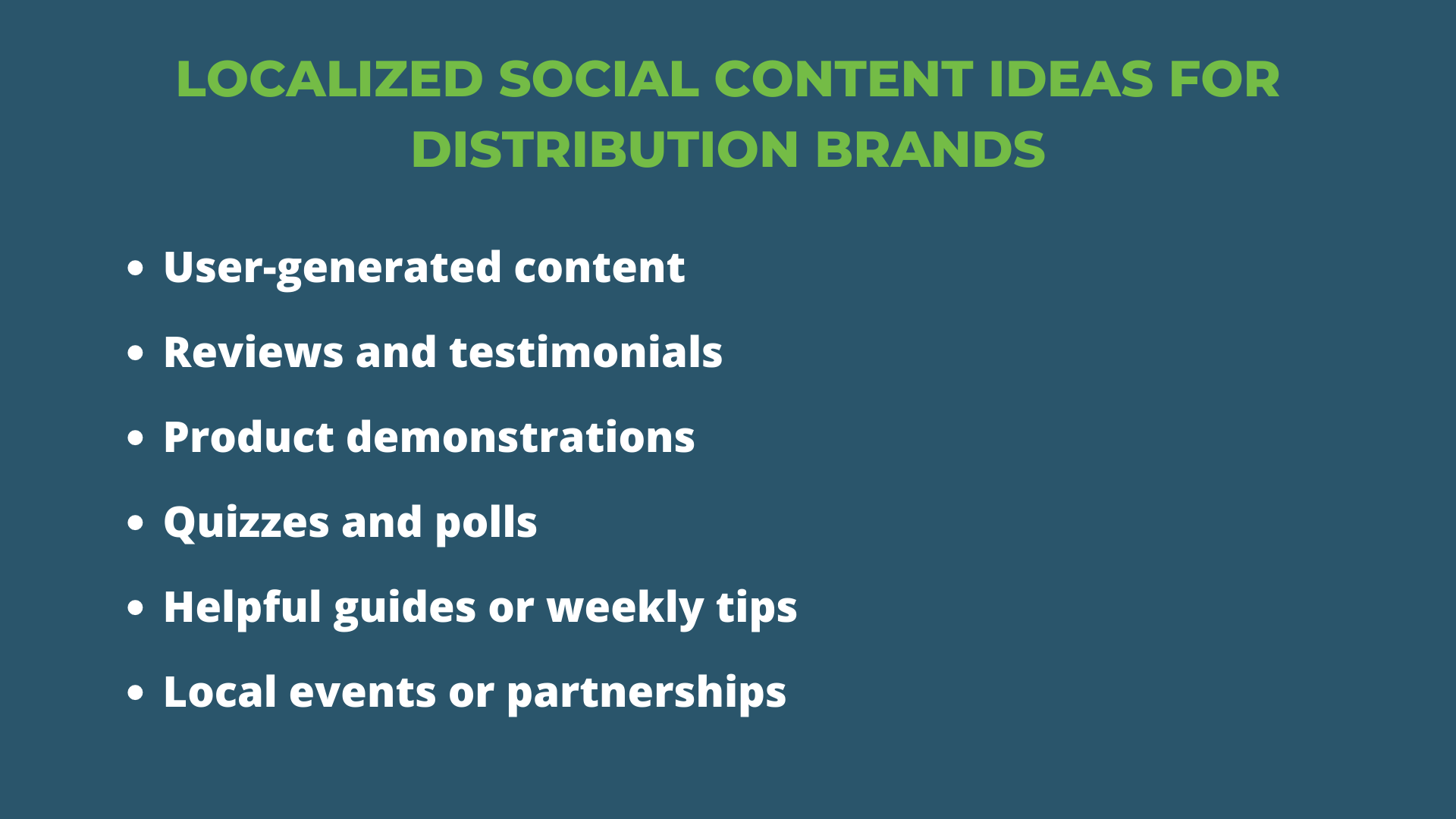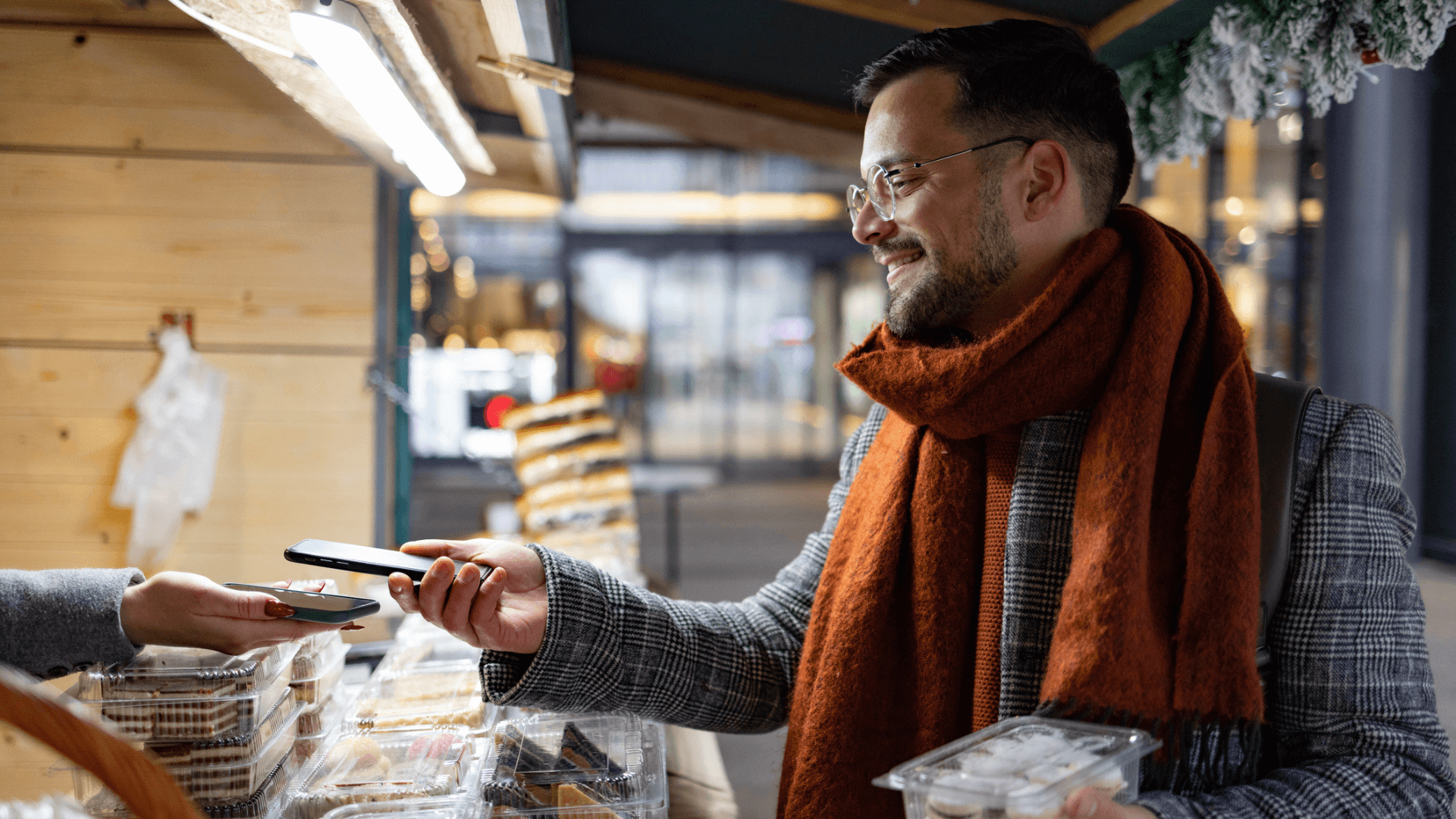What Are AI Agents? And Why Are They Critical to Local Marketing Success?
Distributor Brands X Multi-Location: How to Effectively Market Your Company
Distributor Brands X Multi-Location: How to Effectively Market Your Company
Distributor brands have the unique challenge of marketing their products across their network of independent distributors and dealers.
Partnering with local distributors and dealers can significantly boost sales by driving traffic to the locations where your products are sold. To stay competitive in today’s market, a multi-location marketing strategy is crucial for those who want to expand their brand reach and capture new customers.
In this blog, we’ll define what multi-location marketing means, and we’ll also detail three essential multi-location marketing tactics your company can use to improve your dealer relationships, bolster brand loyalty, and increase your profit.
What is Multi-Location Marketing?
First, let’s define what multi-location marketing is.
Multi-location marketing is a strategy that allows brands to manage and coordinate their marketing efforts across their network of independent dealers and distributors.
Multi-location marketing is a crucial component of a marketing strategy that supports your local distributors and dealers so that they can better market your products to local consumers through various online channels.
By supporting your channel partners with the digital marketing tools and resources they need to effectively market your brand and products, you can create a seamless and consistent customer experience across all touchpoints, from online to offline.
Creating a co-op marketing fund is a great way to give dealers the necessary resources to promote your products successfully. By investing in a co-op marketing fund, you not only help your dealers succeed but ensure your brand is well-represented across all locations.
Now, onto the multi-location marketing strategies your company can begin implementing!
1. Utilize Dealer Locators and Local Pages
Forty-six percent of all Google searches are linked to something local. Therefore, you and your dealers must appear in local search results by optimizing your websites and producing localized content.
One way to boost visibility in local search results and improve your user experience (UX) is through dealer or store locators and local pages. Let’s discuss dealer locators first.
Dealer Locators
A store or dealer locator, sometimes called a where to buy locator, is a web page on your website that helps customers find dealers that sell or distribute your products.
Locators display valuable information and details about each store location, making it easier for online shoppers to purchase your products. Below is an example of ECHO-USA’s dealer locator:

Dealer locators often offer the following capabilities that improve the user experience (UX) and keep online users in your sales funnel:
- Driving directions
- Real-time updates
- Enhanced product searching, filtering, and sorting
- Sales, event, and coupon integration
- Mobile-first design
- Location data management
- Geocoding (converting addresses into geographic coordinates)
Your locator works hand-in-hand with local pages, which we’ll discuss next.
Local Pages
Local pages, often called local landing pages, are individual web pages connected to a singular local dealer or store. They’re often linked to your locator so consumers can quickly find the closest location to them.
Local pages on your website are critical to retaining customers and preventing them from bouncing to dealer web pages, which often feature your competitors’ products.
Similar to dealer locators, local pages help consumers find pertinent business information, such as the:
- Dealer’s name
- Address and directions
- Phone number
- Business and varying service hours
- Available products and services
- Online ordering
- Sales events and new offerings
Well-optimized local pages help brands appear in relevant local search results. They also improve your business’s UX — leading to a better customer experience (CX) and more brand loyalty.
Read our article on local pages and locator for distributor brands for more detailed information.
We’ve built SOCi Local Pages and our Locator with lead generation in mind by allowing consumers to find store dealers quickly, view inventory and prices, order directly on the local pages, and other lead-generation abilities.
Learn how ECHO-USA increased its page views by 152 percent with the help of SOCi Local Pages and Locator.

2. Publish Localized Social Content
Our research found that localized content receives 12x the engagement rate of “non-localized content.” Therefore, publishing localized content on social media must be part of your company’s multi-location marketing strategy.
Distributor brands must partner with local dealers to share content on their local social profiles.
Earlier, we briefly mentioned a co-op marketing program/fund — often called a market development fund. A market development fund is when a brand pays for a portion of or all marketing campaigns and marketing technology (MarTech) for their partnered dealers. These programs and funds make it easier for dealers to promote your products and brand.
This co-op marketing program helps you strengthen your relationship with local dealers. It also allows you to publish product-driven content on their local social profiles. This partnership leads to more brand awareness and increased online and in-store sales of your products at local dealers.
Below are a few local social media ideas you can use to create content for your local dealers to publish.

Generally, it’s best if the content is interactive (like a poll or live Q&A session) or in video format. Our Secrets of Facebook Post Engagement report found that posts with videos have twice the correlation with engagement as posts with photos on Facebook.
For more local social media tips and tactics, download The Localized Social Content Guide for Distributor Brands.
Utilizing the right technology can help you make the most out of your co-op marketing fund. SOCi Social allows you to share pre-approved localized social content for your local dealers to publish. Furthermore, SOCi Social’s content libraries help organize your images, videos, and other engaging content.
3. Improve Your Customer Experience With Chatbots
Another component of multi-location marketing brands must consider is the customer experience (CX). CX is how your company interacts with customers and how you make them feel throughout the buying journey.
For distributor brands, CX can take the form of:
- Product experience: How customers perceive your products, from overall quality to usability, functionality, and reliability.
- Digital experience: How simple it is for consumers to find your products, understand them, and order them online or find a local dealer.
- Social experience: How potential and current clients perceive and interact with your company’s social media accounts and presence.
One way to improve your CX is through a chatbot. Chatbots are computer programs that use AI to simulate human conversations. You can use them to answer customers’ questions and inquiries quickly.
They also speed up the conversion process while reducing your employees’ workload. Sixty-two percent of consumers would rather interact with a chatbot than wait for a customer service representative to take their call.
Your company can utilize chatbots to help:
- Process orders
- Answer questions about products and local dealer inventory
- With lead generation by collecting personal information for sales or customer service to later respond to
- Marketing by providing consumers with personalized recommendations based on inquiries and purchase history.
If you need a chatbot, consider using SOCi SmartBot. SOCi SmartBot is built for multi-location brands and integrates with your website and Facebook accounts. SOCi SmartBot also integrates with email and SMS text.
Download our Localized Chatbot Guide, which further details how your company can implement chatbots into its multi-location marketing strategy.
Dominate Your Multi-Location Marketing Efforts With SOCi
Distributor brands need the right software to make the most of their multi-location marketing strategy. This is where SOCi can help!
SOCi provides a centralized platform that allows brand marketers to find actionable data and insights from every multi-location marketing effort. As mentioned, our social management solution makes it seamless to provide local dealers with content to publicize your products and increase both their and your sales.
While SOCi Local Pages and Locator help boost your local search rankings, making it easy for consumers to purchase directly on your website or from dealers closest to them.
Furthermore, SOCi SmartBot can help improve your online presence, reputation, and customer experience — leading to more conversions and sales.
Request a demo today for more information on our product suite and to learn how SOCi can help your company dominate your multi-location marketing efforts!







